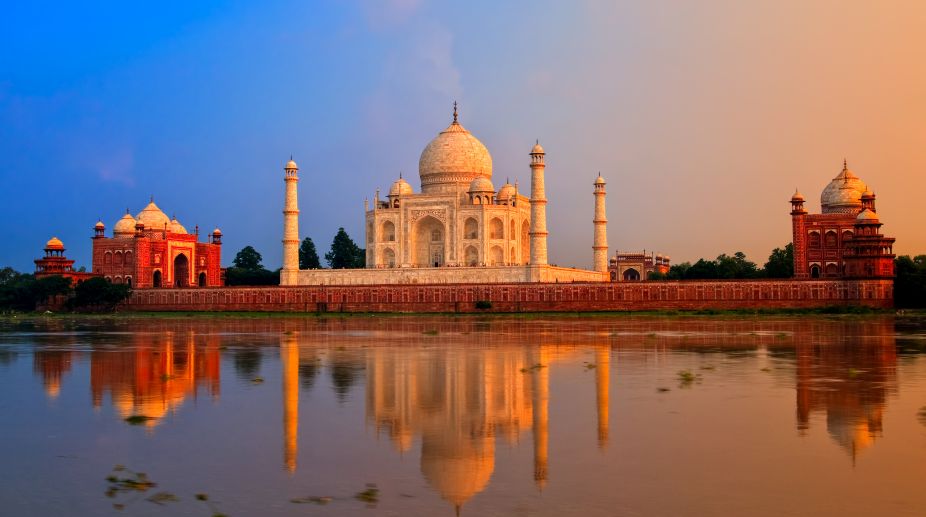Miscreants break into house of Asansol businessman
Asansol South Police has already started investigations and are scanning the CCTV footages of the house in the resident of businessman Subir Basu in North Hill View area.

Representational Image (Photo: Getty Images)
Acting firmly after a Swiss couple was assaulted by five youngsters in Fatehpur Sikri near here, the Uttar Pradesh government has ordered the rounding up of anti-social elements around the historical monuments in and near Agra.
In the last 24 hours, more than 50 ‘lapkas’ or touts who target foreign visitors at Fatehpur Sikri, Agra Fort and Taj Mahal have been rounded up. They have been booked for harassment and disturbing public peace and sent to jail.
Advertisement
Senior Superintendent of Police Amit Pathak said information centres were being planned at the monuments where tourists will get help from Tourism Police. A booklet will be published giving full details of distances and fares.
Advertisement
Chief Minister Yogi Adityanath, who was in Agra three days ago, expressed his unhappiness at the unlawful activities of unauthorized canvassers and vendors at the historical monuments.
With three world heritage monuments and several architectural marvels, Agra is annually visited by nearly 10 million Indian and foreign tourists.
“Tourism is the mainstay of Agra’s economy, supporting a network of hundreds of big and small hotels, emporia, resorts and travel networks. After the opening of the Yamuna Expressway and the Lucknow-Agra Expressway, there has been a spurt in footfall,” says the President of the Agra Hotels and Restaurants Association, Surendra Sharma.
In Fatehpur Sikri, tourism supports hundreds of families, he added.
On October 22, a young Swiss couple, both aged 24, walking along a railway track were brutally set upon by five young men at Fatehpur Sikri. The Swiss man suffered fractures. Both were warded at the Apollo Hospital in Delhi.
Hotel owners are worried about the impact the incident will have on tourism.
“True, ‘lapkas’ bring a bad name to the city. But generalizing the negative features dents the fair and positive image of Agra as a whole and the tourism industry in particular,” said Raj Kumar, owner of Hotel Alleviate.
“Agra’s hotel business is tourist friendly and provides reasonable hospitality which has been appreciated by customers from across the globe,” he added.
In the past there has been a lot of criticism of the police for not promptly acting on complaints of harassment by touts at the monuments.
“From the Agra Cantt railway station to emporiums, to monuments, the so-called illegal guides or agents and canvassers, who locally are called ‘lapkas’, have created a nightmarish ambience for the tourists,” admitted Shravan Kumar Singh of the Braj Mandal Heritage Conservation Society.
“In the process, the entire tourism industry gets a bad name. Tourists do not want to return to Agra. At Fatehpur Sikri you cannot walk alone without being swarmed by these ‘lapkas’,” he said.
Licensed tourist guides too want an effective policing network to curb the undesirable activities of ‘lapkas’.
While the police action has been welcomed by a section, there is resentment against the arrest of so many who may not be involved in any anti-social activity.
“This is just face-saving for the failure in Fatehpur Sikri,” said the father one of those arrested.
“It is police high-handedness. Reasonable canvassing or persuading tourists to visit a shop or an emporium or hotel cannot be called illegal,” said hotelier Sandeep Bhaiyya.
“The police have no set of rules or guidelines on how to regulate this form of activity which has been deliberately given a bad name in Agra,” he said.
The 17th century Taj Mahal, built by Mughal emperor Shahjahan in memory of his wife Mumtaz, is considered one of the wonders of the world and is India’s biggest tourist draw.
Many of those visiting the Taj also go to Agra Fort and the nearby Fatehpur Sikri.
Advertisement